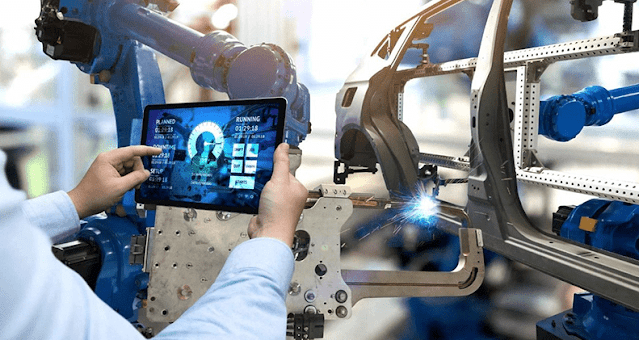Blockchain: The new bump in technology
To
deliver the greatest impacts —creating new business models, markets and value
propositions — IoT must be combined with other emerging technologies including
artificial intelligence (AI), machine learning, fog computing and, of course,
blockchain.
Though
cryptocurrencies and blockchain-based technologies are heralded as the
framework to build a more financially inclusive society, this goal has not been
realized to date. It can actually be argued that blockchain technology is a
tool for those who are economically privileged, in part due to the technical
understanding most blockchain-based technology currently requires.
The
integrity of the data is paramount and innovative tagging methodologies are
required. Any technology solutions we use also have to be able to work in
remote environments and be feasible for all kinds of mining operations,
particularly artisanal and small-scale mines. Using blockchain won’t solve
every issue, but it can be a powerful tool to overcome many minerals supply
chain challenges because it provides trust, immutability, and transparency.
First,
solve the problem. Then write the code.
In most
cases, today’s supply chains operate at-scale without blockchain
technology. Even so, the technology has excited the IT and supply-chain worlds.
It has also inspired many articles and prompted established IT players and
start-ups to initiate promising pilot projects, including
ü Walmart tested an application that
traces pork in China and produce in the US, to authenticate transactions and
the accuracy and efficiency of record keeping.
ü
Maersk
and IBM are working on cross-border, cross-party transactions that use
blockchain technology to help improve process efficiency.
ü
BHP
is introducing a blockchain solution that replaces spreadsheets for tracking
samples internally and externally from a range of providers.
ü
Provenance,
a UK start-up, just raised $800,000 to adapt blockchain technology to trace
food. It previously piloted tracing tuna in the Southeast Asian supply chain.
Yet
to date, the authors are not aware of any at-scale applications to the supply
chain, raising an essential question: Can blockchain technology add value to
supply chains?
Let’s start
with a reality check: As most practitioners know, many of today’s supply chains
have good data, which they are able to transfer across supply chain tiers at
close to real time speed. To assess blockchain technology’s value at stake for
the supply chain world, we looked at three areas where it could add value:
ü Replacing slow, manual processes.
Although supply chains can currently handle large, complex data sets, many of
their processes, especially those in the lower supply tiers, are slow and rely
entirely on paper—such as is still common in the shipping industry.
ü
Blockchain
pilots run to date have not proven the technology’s unique value to the supply-chain
sector.
There
are many variations of passages of Lorem Ipsum available, but the majority have
suffered alteration in some form, by injected humour, or randomised words which
don’t look even slightly believable. If you are going to use a passage of Lorem
Ipsum. You need to be sure there isn’t anything embarrassing hidden in the
middle of text. All the Lorem Ipsum generators on the Internet tend toitrrepeat
predefined chunks. Necessary, making this the first true generator on the
Internet. It re are many variations of passages of Lorem Ipsum available, but
the majority have suffered alteration in some form, by injectedeed eedhumour,
or randomised words which don’t look even slightly believable.




Comments
Post a Comment